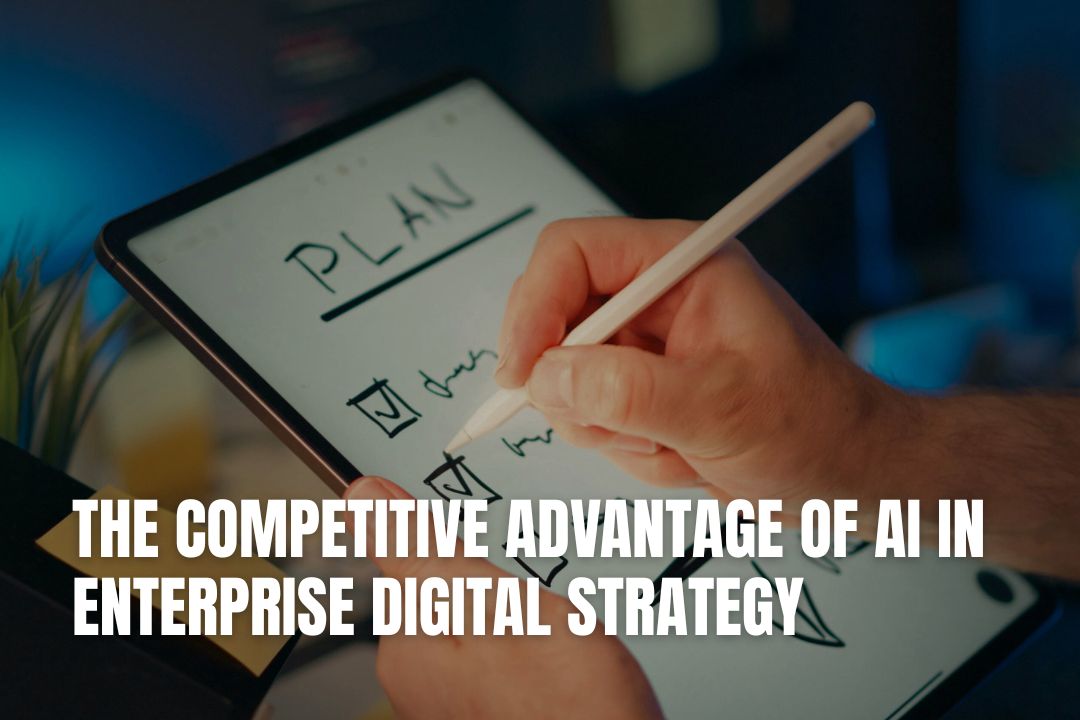
Enterprises today operate under relentless pressure to innovate, scale, and stay resilient in the face of constant disruption. Competitors, shifting customer expectations, and emerging technologies are rewriting the rules faster than ever. In this environment, artificial intelligence has evolved from an experimental tool into a cornerstone of modern digital strategy.
With the right enterprise AI platform, organizations can harness their data, automate complex processes, and adapt quickly to change. The result is smarter decision-making, greater efficiency, and a foundation for long-term growth. In this article, we’ll explore why AI is no longer optional, but essential for enterprises that want to lead.
Increasing efficiency is a major goal for every enterprise, and artificial intelligence offers the biggest boost to optimization today. With AI, repetitive and low-skill tasks can be effortlessly automated, while LLMs can be trained to offer assistance with even high-level decision-making.
This advantage is evident in predictive maintenance and resource optimization, which increase efficiency by reducing downtime, lowering costs, and simplifying calculations when it's time to scale. The result is reclaimed time that would otherwise be wasted, allowing teams to focus on maximizing ROI.
Enterprises generate massive volumes of data on all of their operations, and thanks to AI, that resource is just a click away from being actionable insights tailored specifically for that business. With real-time analytics, responding to changes in the market can stop being a reactive headache and become a proactive competitive edge.
In some cases, AI can spot patterns that people miss to highlight preventable losses and so much more. While this would usually require significant investment into tech infrastructure, using platforms like Tensorwave makes this infinitely more accessible.
AI holds great potential for personalization and customer experience, offering new ways to boost engagement and build long-term loyalty. With predictive modeling and recommendation engines, enterprises can design customer journeys that feel uniquely tailored to each individual, turning generic interactions into meaningful, relevant conversations.
In marketing, this means anticipating customer needs before they’re even voiced. Campaigns become more precise and appealing, dynamic pricing adapts to the shifting balance of supply and demand, and chatbot-driven support delivers timely, effective responses.
Beyond enhancing existing models, AI also enables enterprises to create entirely new offerings. From autonomous services and smart products to fully AI-powered platforms, organizations can expand their portfolios with innovations that would have been unthinkable just a few years ago. Even products that aren’t directly tied to AI benefit from accelerated development cycles through advanced simulation and rapid AI-led prototyping.
This potential for innovation opens the door to bold experimentation, including fresh business models such as AI-as-a-service. It marks a new frontier where early adopters gain the advantage of shaping emerging industries, while late movers risk being left behind.
While AI offers tremendous opportunities, it also brings risks and challenges that enterprises cannot ignore. Because AI models are shaped by the data and methods used to train them, issues such as inherited biases and limited transparency often emerge. Add to this growing regulatory scrutiny and concerns over workforce displacement, and it’s clear that adoption must be handled carefully.
The good news is that these challenges can be mitigated through responsible adoption. By establishing strong governance frameworks and prioritizing ethical AI practices, enterprises can balance innovation with accountability. This not only helps avoid reputational damage but also builds trust with stakeholders, ensuring that AI becomes a sustainable driver of long-term advantage.
The era of AI skepticism is over, adopting this technology is now a non-negotiable requirement for staying competitive. AI has become the dividing line between industry leaders and those at risk of falling behind. Enterprises that embrace it responsibly, with an emphasis on ethics and effectiveness, will be best positioned to navigate future market shifts with confidence.
Prudent investment in AI today can determine whether a company shapes its industry’s future or gets left behind. For enterprises, the choice is no longer about if they should integrate AI, but how quickly they can do it.
AI boosts efficiency by automating repetitive tasks, enabling predictive maintenance to reduce downtime, and optimising resource allocation. This allows your teams to concentrate on more strategic, high-impact work.
Absolutely. AI analyses massive datasets to provide real-time, actionable insights. It can identify subtle patterns and trends that humans might miss, helping you make more informed, proactive decisions instead of just reacting to market changes.
AI personalises the customer journey by using predictive models to anticipate needs. This allows you to deliver tailored marketing campaigns, dynamic pricing, and effective chatbot support, turning generic interactions into meaningful conversations.
While it requires strategic planning, AI opens up significant opportunities for innovation. You can develop new offerings like autonomous services or AI-powered platforms. Solutions from providers like Beacon Inside can help accelerate development and make these advanced capabilities more accessible.
The primary challenges include managing potential data biases, ensuring transparency in AI models, and addressing regulatory concerns. A responsible adoption strategy with strong governance is key to mitigating these risks and building trust with your stakeholders.